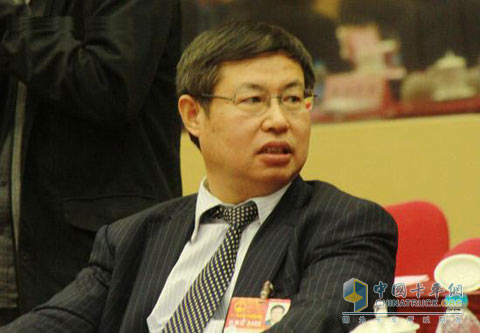Dongguan Huayuan Electronic Technology Co., Ltd , https://www.huayuanelectronic.com
Chairman of the Fast Group Corporation and Party Secretary Li Dakai
Fast opened the first two conferences for auto companies in 2012
The National “Two Conferences†is about to kick off the curtain. The reporter got in touch with some auto companies with representatives from both sides in order to understand and represent the committee’s proposals and proposals in advance. After continuous tracking, the reporter recently received the first " two sessions " proposal from the auto industry. The submitter of this proposal is - Li Dakai, Chairman of the National People's Congress and Chairman of the Party Committee of the Fast Group.
The reporter saw the proposal submitted by Li Dakai to be composed of four parts and the contents are very detailed. It broadly includes the following four aspects: Classifying and formulating the minimum "Three Guarantees" regulations for major categories of automobiles and key assembly products, further improving and revising the "Guiding Catalogue for Industrial Structure Adjustment", and identifying nationally recognized enterprise technology centers in the introduction of high levels at home and abroad, Increased support for high-skilled personnel and conditions for high-tech enterprise identification.
Li Dakai said that in a short period of More than ten years, the Chinese automobile industry has been booming and it has become the world’s largest automobile production and sales country. While the automobile brings great progress and benefits to the society, it also brings hidden dangers such as environmental pollution, excessive energy consumption and safety, which have very different social and economic attributes from other popular consumer products. Li Dakai suggested that the state introduce the “Three Guarantees†regulation for automobile products as soon as possible, and clearly define the minimum three guarantees, mileage, and powers and responsibilities for all major categories of automobiles and key assembly products. Ensure the rights and interests of consumers, improve public safety and quality, reduce energy consumption, reduce waste of resources, and strengthen environmental protection.
The Guideline for the Adjustment of Industrial Structures (2011 Edition) issued by the National Development and Reform Commission in 2011 (hereinafter referred to as the “Catalogueâ€) is an important guideline for the government to guide investment, manage investment projects, and formulate and implement fiscal, taxation, finance, land, and import and export policies. The basis has an important guiding role in encouraging the upgrading of traditional industries, fostering strategic emerging industries, and developing service industries. The "Catalogue" has made clear and detailed the relevant items, but after the refinement, some of the advanced technologies were not included in the scope of encouragement. Li Dakai suggested that the “heavy-duty trucks and buses (including mechanical transmissions, axles and other key components)†continue to be included in the encouragement category. Add "hydraulic retarder" items in the 16th category of "car key parts" of the "catalogue" encouragement category, and "hydraulic force" in Article 19 of Article 19 of the "Foreign Investment Industry Guidance Catalogue (Revised in 2011)" "Retarder" project is equivalent to encourage the support of domestic auto parts companies to accelerate the development of hydraulic retarder technology. The AT and CVT automatic transmissions are included in the "catalogue" encouragement category.
From 2008 to the present, a series of relevant policies on the introduction of high-level talents have been introduced from the central government to local governments, such as the introduction of high-level overseas talent introduction policies (referred to as the “Thousand-person Programâ€) organized by the Central Coordination Committee for Talent Work; Shaanxi Province has also successively The "100-person plan" and "Sanqin scholars" have been introduced to encourage the introduction of high-level talents. These policies have provided exhaustive stipulations on the conditions for the introduction of talents, personnel management, working conditions, living conditions, large-scale subsidies, tax incentives, and spouse placement. However, there are some problems that need to be solved in the implementation of current policies. Reality. Li Dakai suggested that the relevant national ministries should formulate special policies for high-end, high-specialized specialized R&D institutions such as the state-certified enterprise technology center, in accordance with the “One Thousand Talents Program†or local “Hundred Talents Program†preferential support policies, and support national key enterprises and national large-scale projects. The enterprise group accelerates the introduction of high-level and highly-skilled talents and technological innovations so that high-level and highly-skilled applied talents at home and abroad who enter this institution and meet the criteria for consideration fully understand and enjoy the working conditions and living conditions granted by the country or the local government. The preferential support policies for large subsidies, tax incentives, and spouse placements provide policy support and basic guarantees for industrial companies to optimize their talent team, accelerate the pace of innovation and development, enhance the competitiveness of science and technology, and integrate quickly into global economic integration.
The “Measures for the Management of High-tech Enterprise Certifications†(hereinafter referred to as the “Accreditation Measuresâ€) and the “Guidelines for the Management of High-tech Enterprise Certifications†(hereinafter referred to as the "Working Guidelines") promulgated by the State in 2008 are based on independent research and development and innovation capabilities of enterprises. In high-tech enterprises, tax incentives have also changed from regional preferences to industrial preferences. However, from the specific provisions and implementation of the "Authentication Measures" and "Working Guidelines," there are still some deficiencies in the identification policy, which needs to be further revised and improved. Li Dakai suggested that the qualifications and scope of high-tech enterprises should be appropriately relaxed and expanded; the “Certification Method†and “Working Guidelines†define the core intellectual property rights of high-tech enterprises too monolithically, and the content of core intellectual property rights should be sorted out and standardized. Further strengthen the explanation and publicity of the "Authentication Measures" and the guidance and supervision in the implementation process. In the specific implementation process of the high-tech enterprise certification work, there is a situation in which the local government has strengthened the conditional restrictions due to the differences in understanding of the "Certification Procedures."